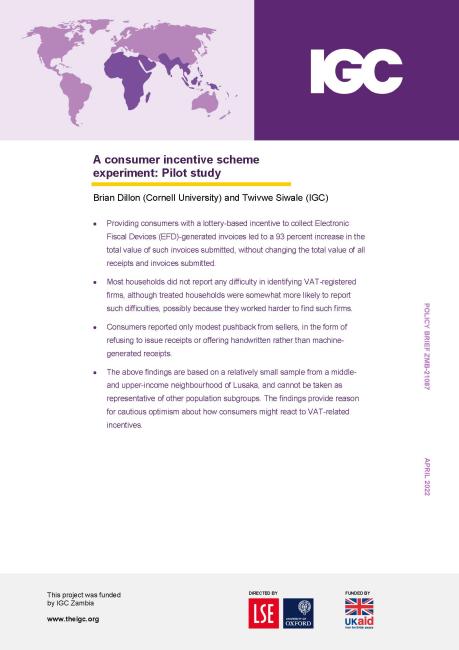Harnessing the power of electronic fiscal devices
Low tax compliance is a major challenge in most developing countries, including Zambia. Many governments have adopted a Value Added Tax (VAT) to increase tax revenues and VAT is now responsible for up to a quarter of total revenues in developing countries (Keen, 2016).
The key benefit of VAT is that it is self-enforcing along the supply chain. Firms have a financial incentive to honestly report the value of transactions on intermediate goods. This incentive structure breaks down at the “last mile” – the point of retail sales to consumers – where the transaction is not reported by the buyer and hence is susceptible to under-reporting by the seller.
In response, many countries, including Zambia, have introduced Electronic Fiscal Devices (EFDs) to mitigate underreporting at the last mile. EFDs transmit a record of the transaction to the revenue authority in real-time. Although EFDs are not guaranteed to increase VAT revenues, in combination with the appropriate policies they can substantially reduce the cost of ensuring VAT compliance.
The aim of this project is to analyse the performance of EFDs in Zambia, understand the responses of firms and consumers to the new technology, and experimentally evaluate complementary policy interventions to maximize the revenue benefits of EFDs.
This pilot study has two components:
- The first is a consumer survey to examine individuals’ understanding of VAT, experience receiving EFD receipts, and perspectives on tax avoidance and public sector service delivery.
- The second is an experimental evaluation of a consumer incentive scheme, based on a highly successful programme in Brazil. The experiment will be implemented at a series of shopping districts or markets on busy days.
Findings will provide context for future research, and insights of interest to policymakers.





